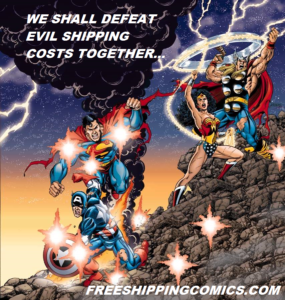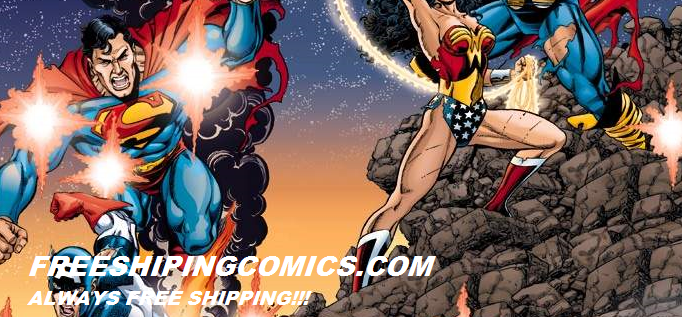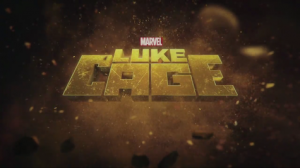 Back in November of last year, we finally got our Luke Cage in the Marvel Cinematic Universe, in which the titular of Jessica Jones crossed paths with the the would-be Hero for Hire. As the season for Jessica Jones closed, it was already known that Luke himself would be appearing in a series of his own soon enough, of which I was skeptical of. Make no mistake, I was aware of the legacy attached to Luke Cage, as well as his basic backstory and relations with Jessica, as well as his just-as-legendary friendship with Iron Fist and their Heroes for Hire business, but a show for Luke Cage seemed to be difficult for me to process.
Back in November of last year, we finally got our Luke Cage in the Marvel Cinematic Universe, in which the titular of Jessica Jones crossed paths with the the would-be Hero for Hire. As the season for Jessica Jones closed, it was already known that Luke himself would be appearing in a series of his own soon enough, of which I was skeptical of. Make no mistake, I was aware of the legacy attached to Luke Cage, as well as his basic backstory and relations with Jessica, as well as his just-as-legendary friendship with Iron Fist and their Heroes for Hire business, but a show for Luke Cage seemed to be difficult for me to process.
Initially I thought a Heroes for Hire show would have been a better direction to go in than having him go solo. Yet given how Daredevil and Jessica Jones were so well handled, it only seemed logical to have faith in Marvel’s Netflix division and let it do what they do best.
My gut instinct was right, as Luke Cage stands as a solid addition to Marvel Netflix, offering a story with an extremely likable and sympathetic hero who can’t stand by and let Harlem be run by corrupt figures of power. Mike Colter returns as Luke Cage, whose large demeanor is perfect for the character. With the looks he also brings with him acting chops to make him a formidable actor in Marvel’s ever-expanding cast. While I found Colter to be fine on Jessica Jones, it’s on his own show where he truly is able to shine and carry the tremendous weight of the show on his back.
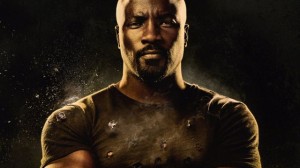 Part of what makes the show so enjoyable is Colter’s persona as Cage, who makes every scene he’s present captivating and fun at the same time. Colter seamlessly is able to make Luke a lovable person who you can see yourself being friends with, but at the same time one person you’d hope to not meet were you in a criminal’s position. Part of what makes the show fun, however, is seeing Luke do things that are generally Luke-oriented. Lifting up criminals and knocking them out with little to no effort is all in good fun, but it’s in those moments where Luke is walking through gunfire, physically unscratched, and making remarks about having to buy new clothes that warrant a chuckle. Colter also helps make Luke a character you feel for. He’s well spoken, well mannered, and everything unfortunate that rolls his way you generally feel upset about because he’s just trying to do the right thing for the borough.
Part of what makes the show so enjoyable is Colter’s persona as Cage, who makes every scene he’s present captivating and fun at the same time. Colter seamlessly is able to make Luke a lovable person who you can see yourself being friends with, but at the same time one person you’d hope to not meet were you in a criminal’s position. Part of what makes the show fun, however, is seeing Luke do things that are generally Luke-oriented. Lifting up criminals and knocking them out with little to no effort is all in good fun, but it’s in those moments where Luke is walking through gunfire, physically unscratched, and making remarks about having to buy new clothes that warrant a chuckle. Colter also helps make Luke a character you feel for. He’s well spoken, well mannered, and everything unfortunate that rolls his way you generally feel upset about because he’s just trying to do the right thing for the borough.
It’s the figures that revolve around Luke and within Harlem that generally make the show feel more alive and within a living, breathing environment. In the forefront is Cottonmouth, a nightclub owner who smuggles weapons around New York. Cottonmouth, played by Mahershala Ali, operates alongside his cousin, Mariah Dillard, (Alfre Woodard) a local politician who goes on about a new renaissance in Harlem. Together, these two are constantly in an attempt to twist Harlem in their favor, as well as erase Luke from the picture.
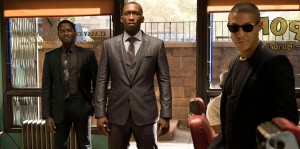 It’s in its villains that Luke Cage faces part of its problems. For the first half of the show, the show introduces Cottonmouth and Mariah as the main antagonists, in which their operations start to unravel because of Luke taking a stand to them. This first half is generally entertaining and leaves you wondering where it’s necessarily going to go, but the show seems to be weak with Cottonmouth being the primary antagonist. He’s not physically capable of dealing with Luke and not equipped to deal with someone of his stature, and that ultimately slows down the first half with its game of predator and apex-predator. It’s in the second half of the show, when Diamondback is introduced, that the show picks up and becomes more in line with the rest of Marvel’s Netflix shows, ultimately becoming darker in the process. For the sake of spoilers, however, it’s best to avoid talking about that second half extensively.
It’s in its villains that Luke Cage faces part of its problems. For the first half of the show, the show introduces Cottonmouth and Mariah as the main antagonists, in which their operations start to unravel because of Luke taking a stand to them. This first half is generally entertaining and leaves you wondering where it’s necessarily going to go, but the show seems to be weak with Cottonmouth being the primary antagonist. He’s not physically capable of dealing with Luke and not equipped to deal with someone of his stature, and that ultimately slows down the first half with its game of predator and apex-predator. It’s in the second half of the show, when Diamondback is introduced, that the show picks up and becomes more in line with the rest of Marvel’s Netflix shows, ultimately becoming darker in the process. For the sake of spoilers, however, it’s best to avoid talking about that second half extensively.
Although the odds may be stacked against him in the show’s writing, Ali’s Cottonmouth is enjoyable to watch whenever he’s on screen. Interestingly enough, it seems that most of the show’s creative instances of camerawork come when he’s on the screen, in which the show displays a sense of artistic merit. There’s no seemingly one-take fight scenes a la Daredevil, but it’s in these small moments that it’s worth patting the directors on the back for their creative choices.
As said, the show picks up steam in its later half, as it finds its groove and works more effectively in establishing its own identity. The first half, while enjoyable and definitely watchable, does move at a slower pace than most might be accustomed to. Much time is spent establishing Luke in the community, as well as him trying to right things. Some speeches about the greatness of Harlem and uniting the community are welcome and all, but they quickly become akin to Daredevil’s snarls about “This is my city!” which are in turn re-worded phrases from Nolan’s Batman films. It’s a solid contribution to Luke Cage’s theme of community, but it feels like we’ve been here before in its same preachy ways.
 While the story comes down to being two predators chasing after one another, it’s the rest of the cast that help contribute to the mess that Harlem finds itself in across its 13-episode season. Simone Missick stands strong as Misty Knight, a detective who constantly crosses paths with Luke Cage and quickly gets herself involved in the ongoings in Harlem. Theo Rossi appears as a grounded version of Shades, who starts off slow in the series but quickly becomes a presence and a somewhat likable character as the episodes wind down. Rosario Dawson once again returns as Claire Temple, who arrives midway through the series and helps make the show more unified with the rest of the ongoing Netflix series. Dawson is undoubtedly at her best as Claire in Luke Cage, and after three Netflix show appearances, she is only getting better as she goes on.
While the story comes down to being two predators chasing after one another, it’s the rest of the cast that help contribute to the mess that Harlem finds itself in across its 13-episode season. Simone Missick stands strong as Misty Knight, a detective who constantly crosses paths with Luke Cage and quickly gets herself involved in the ongoings in Harlem. Theo Rossi appears as a grounded version of Shades, who starts off slow in the series but quickly becomes a presence and a somewhat likable character as the episodes wind down. Rosario Dawson once again returns as Claire Temple, who arrives midway through the series and helps make the show more unified with the rest of the ongoing Netflix series. Dawson is undoubtedly at her best as Claire in Luke Cage, and after three Netflix show appearances, she is only getting better as she goes on.
It’s connecting with the rest of the MCU as a whole that Luke Cage accomplishes a lot more than previous Netflix series. Much like Daredevil and Jessica Jones, the events of The Avengers are referenced by “The Incident,” but while the two shows prior stopped at referencing things with “magic hammers” or “the big green guy,” Luke Cage actually name-drops characters, as well as makes references to characters more frequently. Claire mentions that she “knows an attorney” will result in a raised eyebrow, but name-dropping specific characters ultimately makes the show feel more interconnected and impactful on the world around them.
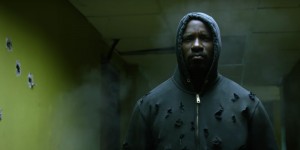 What helps build this world up (But also take away from it) is the soundtrack. Oftentimes the music takes music from real-world artists, and it ultimately works for the vibe of the show. However, the other half of the time you’ll be hearing the original soundtrack, which is one that reduces tension in scenes where there is ultimately meant to be more. One scene in particular has Luke running through alleyways, in which it should be a tense scene with the given situation. The music playing, though, takes the tension right out of the scene, and ultimately results in the show stuttering with its engagement with the audience. In the quieter moments of the show it works, and is often well composed, it’s just results in its placement that it becomes problematic.
What helps build this world up (But also take away from it) is the soundtrack. Oftentimes the music takes music from real-world artists, and it ultimately works for the vibe of the show. However, the other half of the time you’ll be hearing the original soundtrack, which is one that reduces tension in scenes where there is ultimately meant to be more. One scene in particular has Luke running through alleyways, in which it should be a tense scene with the given situation. The music playing, though, takes the tension right out of the scene, and ultimately results in the show stuttering with its engagement with the audience. In the quieter moments of the show it works, and is often well composed, it’s just results in its placement that it becomes problematic.
All in all, however, Luke Cage is another strong addition to Marvel’s excellent Netflix line of shows. While the story is not as ground-shaking as Daredevil or gut-wrenching as Jessica Jones, Luke Cage aims to inspire people to do good in the world and not give in to looking the other way. The cast itself is strong and the story itself is heavily integrated into the larger universe at hand, which makes the little things work throughout. Luke himself is easy to love and being so well acted by Mike Colter, it’s going to be great to see him return next year for The Defenders. Of the four main players in The Defenders, it’s easy to say that Luke is the one you’ll most likely be most eager to see return.

